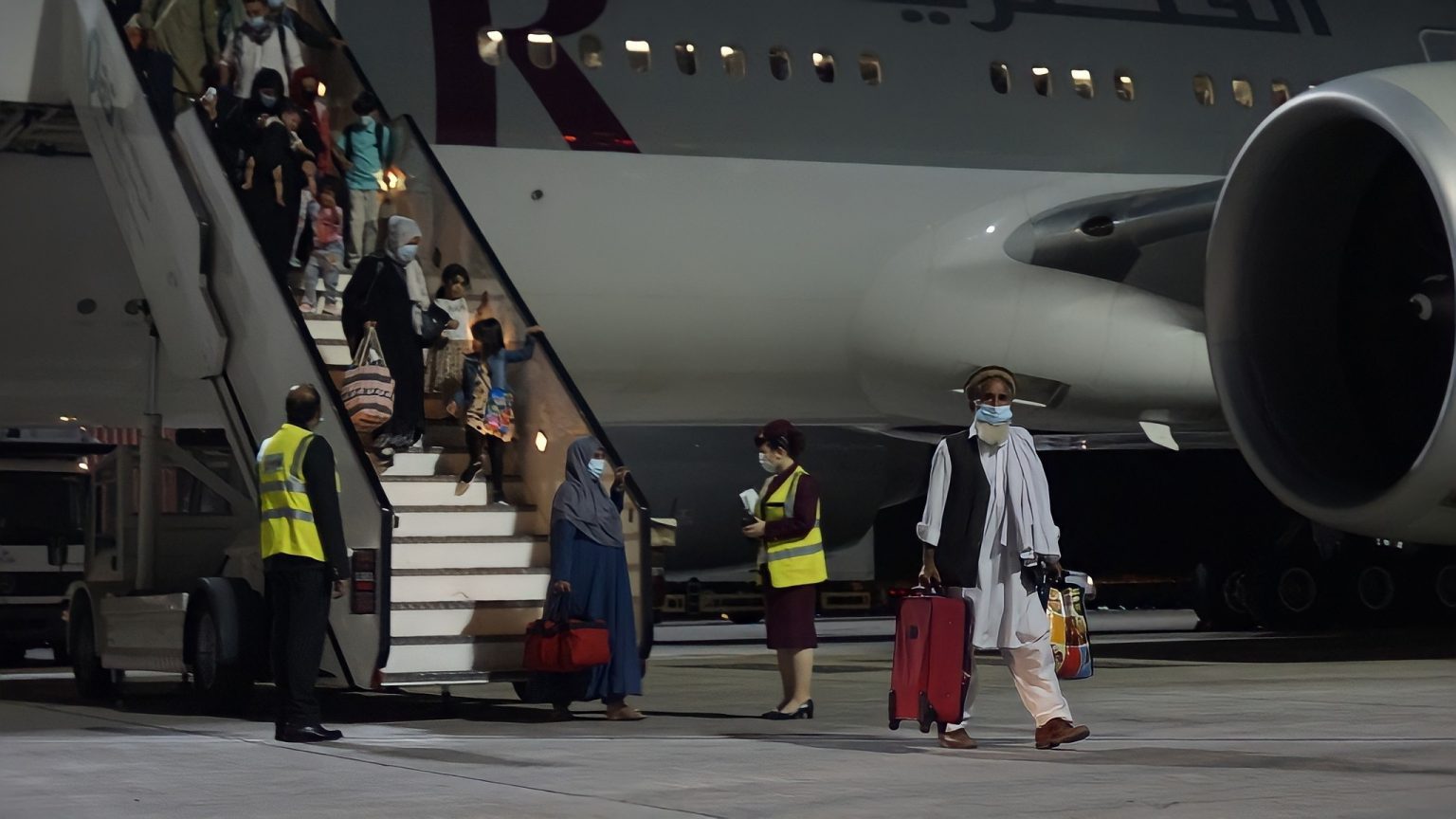Women were banned from participating in sports during when the Taliban ruled in the 90s.
Qatar and FIFA came together to facilitate the evacuation of almost 100 male and female Afghan football players along with their families from Kabul, the football governing body announced on Friday.
“FIFA would like to express its sincere thanks to the government of Qatar for its support facilitating extensive discussions and for ensuring the safe passage of these individuals, deemed to have been at the highest risk,” read a statement by FIFA.
The athletes were among 357 passengers who departed Afghanistan onboard a Qatar Airways charter flight on Thursday. This was the eighth and largest passenger evacuation flight from Kabul since late August.
The passengers were later transported to one of the temporary compounds in Doha dedicated to housing Afghan and foreign evacuees.
Qatar gives three Afghans ‘wildcard spots’ to compete at table tennis championship
Last month, the Afghan women’s football team and their families arrived in Pakistan after entering the country through the northwestern Torkham border crossing while carrying valid travel documents.
The Associated Press [AP] reported that an official said the government’s interpretation of Islam is not compatible with the participation of women in any sports.
Women athletes were banned from participating in sports during the previous Taliban rule from the late 90’s until 2001. The Taliban’s takeover of Kabul on 15 August raised particular concerns among female athletes, with many being left with no choice but to hide from the militants.
Afghan women and girls were also prohibited from working, accessing education and leaving their homes without a male guardian under the Taliban’s harsh interpretation of Islam.
Despite its promises of having a more moderate rule, in which the Taliban vowed to protect the rights of women and girls, the new interim administration’s actions on the ground have proved to show otherwise.
Since the Taliban formed its interim government, comprising of members of the Taliban and loyalists, women appeared to be sidelined from assuming positions in the new adminsitration.
The Taliban also shut down the ministry of women’s affairs and transformed it into a ministry for the “propagation of virtue and the prevention of vice”.
Girls have also been banned from joining their male counterparts at schools since the Taliban seized power militarily.
On Sunday, the Taliban said that it is allowing Afghan girls to return to primary school.
This came after UNICEF Deputy Executive Director Omar Abdi said girls in just five of Afghanistan’s 34 provinces are currently allowed to attend secondary school.
The provinces include: Balkh, Jawzjan and Samangan in the northwest, Kunduz in the northeast, and Urozgan in the southwest.
However, the Taliban has assured it will allow all Afghan girls to attend secondary school.
“As I speak to you today, millions of girls of secondary school age are missing out on education for the 27th consecutive day,” Abdi said, as quoted by the AP.
“We are urging them not to wait. Any day that we wait—it’s a day lost for those girls that are out of school,” he added.
The Taliban’s acting Afghan Education minister, Abdul Baqi Haqqani, told Abdi that the ruling movement is currently working on “a framework” to enable the return of girls to school beyond sixth grade.
Haqqani said the plan would be announced “between a month and two”.
“The authorities that I’ve met said that when they put in place the framework that they are working on, it will convince more parents to send their girls to school,” said Abdi.
He added that the framework would work towards addressing concerns in conservative societies on the segregation of girls and boys, as well as female teachers.
Afghanistan has recorded a major increase in school attendance at all levels over the past 20 years. In the past decade alone, the number of schools in the country tripled from 6,000 to 18,000, with some 4 million girls gaining vital access to education.
Despite this, the Deputy Chief of the United Nations Children’s Fund said 4.2 million Afghan children are still out of school, including 2.6 million girls.
Follow Doha News on Twitter, Instagram, Facebook and Youtube







